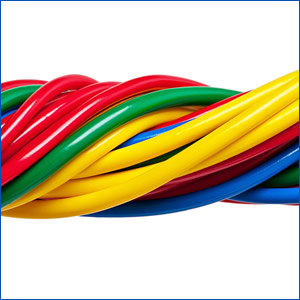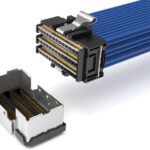Custom Technical Cable and Assembly IS Affordable
Innovative solutions are cost-sensitive when you collaborate with field-proven design engineers who know what to look for and which questions to ask.

When engineers who need special cable constructions hear the word “custom,” they often cringe, as it conjures up visions of dollar signs and delays. That doesn’t have to be the case anymore. Due to customer feedback and overseas competition, progressive manufacturers have adapted to make custom technical cable and assembly solutions accessible.
Conventional manufacturing methods used in the production of wire and cable traditionally necessitate large-volume runs. Therefore, many manufacturers have primarily supplied (and continue to do so) standardized or commercial off-the-shelf (COTS) parts. Legacy manufacturing involves multiple machine setups, generates costly scrap to refine the process, and requires time to clean the machine after a production run. As a result, the cost to make 1,000 feet of cable is nearly the same as the cost for 50,000 feet of cable. While COTS cable is appropriate for some applications, customers who purchase it do not have control over design, tolerances, or materials, which may result in them choosing a COTS product that does not meet their requirements for form, fit, function, and aesthetic.
In many applications, wire, cable, connectors, and assembly are an integral part of the system and its performance, yet customers require solutions designed and manufactured for specific needs. Now that custom end-to-end solutions are readily available and cost-competitive, engineers can meet the needs of their precise designs, at a manageable price, with shorter lead times. How is this possible? Innovative and technically advanced manufacturers have developed methods to design and build prototypes at lower cost, minimize scrap, and dramatically shorten setup times and production runs with state-of-the-art tools and flexible production.
They’ve done this by adopting practices that emphasize responsiveness and agility. Responsiveness involves talking and listening to customers to understand critical-to-quality requirements. Industry surveys repeatedly indicate that customers want quick responses to inquiries, speed in negotiation of terms, and fast delivery of product.
Given this need for speed, progressive manufacturers have improved their customer relations management programs and taken advantage of Internet-based and other electronic tools that enhance the customer experience. They also have implemented programs such as Lean, Six Sigma, and Project Management to improve manufacturing processes and efficiency.
“Every customer should have convenient, cost-competitive, timely access to custom technical cable and assembly products when that’s the best solution for an application,” said Katina Kravik, CEO of Northwire, a LEMO Group Company. “When the application requires smaller-run custom interconnectivity solutions, customers do not want to make large minimum purchases or pay exorbitant prices and wait six to 12 weeks for delivery. Progressive manufacturers have adapted to provide customers with the necessary service offerings. Customers want their custom-tailored products their way, not the manufacturer’s way. It’s a change of mindset in our industry.
“In many cases, offshore suppliers can’t manufacture and ship quickly; communication may be challenging; warranties and guarantees can be difficult to enforce; proprietary designs might not be protected; and short-run custom solutions can be unattainable.”
Another service innovative manufacturers can provide, and customers increasingly expect them to provide, is engineering design and compliance expertise. This proficiency helps customers navigate the complex channels of international and domestic standards, environmental regulations, agency compliance, and cable product specifications such as NFPA 79, REACH, and RoHS2.
The days when engineers’ inquiries are met with high minimum-production runs are over. Customers should be able to collaborate with engineers, select specifications, and have some control over design, tolerances, and materials.
There’s a place for COTS wire and cable in many applications, but custom interconnectivity is no longer impractical. It’s affordable, fast, and easy to order, and more importantly, it’s in demand.
Nine important questions to ask about your cable supplier:
- What is the manufacturer’s minimum length quantity requirement?
- Is your supplier willing and able to develop prototypes and engineering samples under reasonable terms?
- Does the manufacturer have design expertise and is it responsive to your design requests?
- Does the manufacturer have in-house expertise with approval issues and requirements such as UL and CSA?
- Can development costs be recouped after production orders begin?
- Can the manufacturer’s products be backed by actual testing?
- Will the manufacturer guarantee its cables to perform to design requirements including cold bend, crush, impact, temperature extremes, electrical, tensile and elongation, water block, sterilization, chemical, and abrasion?
- Will the manufacturer back up its quality claims and performance of the cable relative to agency approvals and special design requirements?
- How will the manufacturer mitigate problems that may occur?
This article was contributed by Northwire Inc., a LEMO Group Company.







